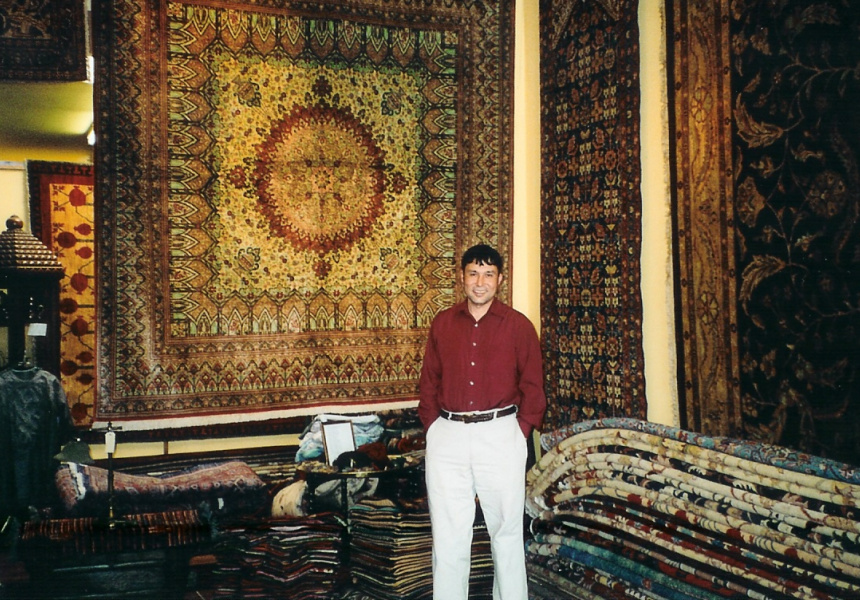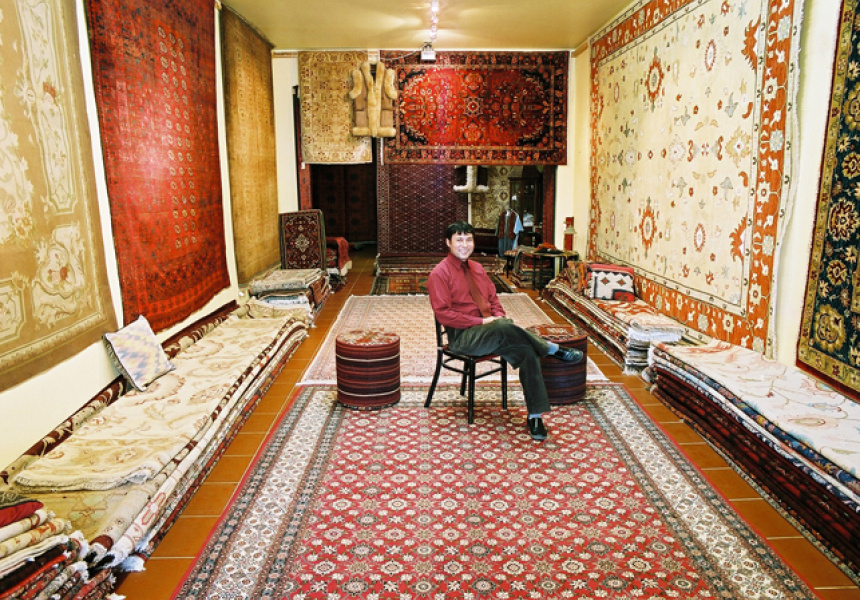Cross-legged on the rug-covered floor of a colourful shop, eating traditional Afghan fare with friends while listening to the stories of the life of a rug maker from Mazar-e Sharif in northern Afghanistan isn’t a typical Monday night, but Najaf Mazari has stories worth telling and a room full of people who want to hear them.
“Afghanistan has always been involved with the war and we always had conflict,” Mazari says. “It was difficult because during the wartime unfortunately you are losing family members and innocent people.”
At the hands of the Soviets and then the Taliban, Mazari lost his brother, brother-in-law and then his uncle and cousin. Mazari himself endured harsh persecution in the form of torture and severe injuries. Afghanistan, it was clear, was no longer a safe place.
Never miss a Melbourne moment. Make sure you're subscribed to our newsletter today.
SUBSCRIBE NOWLeaving his wife and baby daughter behind, Mazari made the uncertain, shaky journey to Australia in 2001 by bus, plane and boat before landing in Woomera Detention Centre, where he spent four long months. Released on a Temporary Protection Visa with $260 in his pocket, Mazari was quick to bring his skill set to his new home, where a few chance meetings, some helpful new friends and a lot of hard work saw him open Afghan Traditional Rugs on High Street in 2002.
“That was what my brother tried to give me in hope of learning a skill and I didn’t realise at the time because I was a child – I wanted to play in the street,” Mazari says. “And now I understand the power of the skill.”
Where he once worked 6am to 11pm daily, sleeping out the back where his desk now sits and showering at the local pool, Mazari’s shop now flourishes, with rugs draped from wall to wall in an enchanting mix of colours and patterns. With a display of nostalgic and authentic Afghan rugs in all shapes and sizes, Mazari’s collection has a tribal aesthetic, incorporating designs from other cultures too.
Now a permanent resident, living with Hakima (his wife) and Maria (his 12-year-old daughter) off Chapel Street after five and a half years apart, Mazari is busy with family, friends, charity work, his shop, interviews and talks.
“When I first got here, I wanted someone to just talk to me for five minutes, because I felt so bored and lonely. Now, fortunately, I am so busy with the talking,” enthuses Mazari, who speaks at schools, has appeared on television and radio and will soon be meeting with The New York Times about his life and books.
As for the rugs, it is a time-consuming art. From the highest quality to the more affordable range, Mazari tells me that it takes about a month to make a rug.
“When I say I make rugs, because of my accent lots of people think I am making drugs,” he laughs. “For me it is a beautiful art, I always love it.”
His two published books, The Rug Maker of Mazar-E-Sharif (which is on the VCE English book list) and more recently The Honey Thief, are captivating and comical collections of stories from his life in Afghanistan and Australia and have been a great success. With the profits garnered from sales, Mazari and friends have purchased an ambulance and helped fund the opening of a school in the village he grew up in, where both healthcare and education is scarce.
While tucking into spiced chicken, an abundance of veggies, traditional palow rice with sultanas and kofte balls that put many restaurants to shame, Mazari tell us of plans to open a traditional Afghan restaurant.
For now, Mazari, Hakima and Maria host these dinners and book clubs at the shop for anyone who has read the book or just wants a traditional Afghan experience among the colourful, rug-clad walls. Through the Masawat Development Fund, the family and their friends also host an annual Afghan evening of traditional food, music and dancing to contribute to ongoing charity expenses.
The shepherd turned rug maker turned successful business owner now spends one month on the road every year, sometimes travelling back home, sometimes around Europe and Asia.
“When I was in Afghanistan I believe I was like a blind person,” says Mazari. “I didn’t know the rest of the world. I never thought I would be talking to the media and writing books, having television and radio interviews, but it happened and I am so lucky.
“Life is in your hands,” he says, as we scrape our plates clean. “You can build your life, you can start your life, you can become educated, or you can become an alcoholic.”
Afgan Traditional Rug
461 High Street, Prahran
(03) 9529 2068
Book dinner or book club at Afghan Traditional Rugs.
afghantraditionalrugs.com.au


